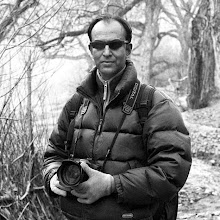Bulleh Shah: The Mystic Voice of Punjab
Not a believer, in the mosque, am I
Nor a pagan, disciple of false rites
Not a pure amongst the impure
Neither Moses, nor the PharaohBulleh!
To me, I am not known!

Farida Breuillac, a practicing Sufi from France, residing in Turkey now, was sitting on a wooden stool in Regal Internet Inn, discussing Sufism over a cup of desi tea. Dazzled as she is by the beauty and naked honesty of Bulleh Shah’s verse, I recited to her one verse after the other and she whirled around in a trance. A week later I was standing outside the shrine of Bulleh Shah in the heart of Qasur city. Dhol beats echoed loud in the air with chants of ‘Ya Ali’ and ‘Dam Mast’as many thronged to the shrine of Bulleh Shah, the greatest Sufi poet of Punjab. His real name was Abdullah Shah, later transformed into Bulleh Shah out of sheer affection from the masses that ardently adhered to his rebellious message of love, hope and wisdom. Historians believe he was born at Uch Gilaniyan in Bahawalpur around 1680, later migrated to Malakwal and finally settled in Pandoke Bhatian, about 14 miles southeast of Qasur. It was here that Bulleh Shah got formal education from Maulvi Ghulam Murtaza, who was the Imam of the main mosque in Qasur.
Bulleh Shah taught at the same mosque after completion of his education. He chose to follow the spiritual path of Inayat Shah Qadri, a famous saint of Qadirya school of Sufis in Lahore. Bulleh suffered incessant torrents of criticism from his family and friends for blindly following a Sufi other than Syeds. This gave spur to his rebellious nature against inherent hierarchy of spirituality and he remained steadfast to Shah Inayat till latter’s death in 1729. Bulleh Shah under a sheer spell of devotional closeness addressed his master as God, Guide, Lord, Spouse, Husband, Beloved and Friend. Under his mater’s guidance he experienced spiritual ecstasy and a vision that helped him to explore the unfathomable realms of inner self. In this process of self identification he began his learning process by grasping the reality of things and felt blessed by revelations from within. But the rapture of being away from his spiritual master never ceased to torment his soul:
He listens to my tale of woe
Shah lnayat guides me and takes me across
Shah Inayat is my Master, who has come to grace me.
All my wrangles and strife's are over
Who can now delude me?

Bulleh Shah’s spiritual quest found its finest expressions in form of Kafis. His tone is ironic and piercing with precision of a surgeon’s knife, his verse bleeding with pain of separation and unprecedented genius of his thought process, mercilessly dissecting misleading social norms and established dogmas in the name of religion. He set out his own aesthetics of the divine, guidance, faith, virtuosity, love and forgiveness. He preached negation of the self while seeking unity with the divine. His verse advocated liberal standards of religious tolerance and communal harmony. Realization of Truth transformed Bulleh Shah into a true mystic. He purified his heart with the fountain of truth gushing deep inside his soul. Intoxicated with wine of spiritual knowledge, Bulleh Shah heroically voiced his wisdom in his verse:
Burn thy prayer mat and break the water pot
Quit the rosary and throw away thy staff
and
Tired of reciting Vedas and Quran
Kneeling and prostrating my forehead down
God neither in Mathura, nor in Mecca resides
Only those can find him who see the light

By saying this verse, Bulleh Shah stands tall in the lineage of Sufis, a stalwart of this whole school of thought being Mansoor who was punished by clerics of the time thinking his Ana-al Haque (I am the truth, I am God). The ecstasy which torments and cleans the soul of a Sufi or saint is a phenomenon hardly perceived or understood by clerics and dogmatists who go by the sanctity of words and not the meanings and context. This happened with Mansoor Hallaj and Bulleh Shah met a similar fate too. He spent rest of his life in total self denial, lived careless of the anguish and hostility that orthodox mullahs unleashed against his verses. He danced fearlessly on the path of spiritual realization and preached love and humanism with a firm rejection of any formal religious authority imposing upon affairs of the people. He was refused to be buried in Muslim cemetery after his death in 1758, thus laid to rest in isolation outside Qasur city.
I am the first,
I am the lastNone other, have I ever known
I am the wisest of them all.
I am the wisest of them all.
Bulleh! Do I stand alone?
Bulleh! To me, I am not known!
Bulleh! To me, I am not known!
Text & Photography by Umair Ghani
Bullah Shah painting by Saeed Art [Lahore].

1 comment:
Baba Bulleh Shah stands tall with his message of truth, universal love, brotherhood, and wisdom that we are neither, momans (muslims), nor Kafirs (Hindus; since God created only humans. He completely rejected the man made walls of institutionalized religions which segregate humanity, and cause intolerance, strife, misery, death and destruction.
Post a Comment